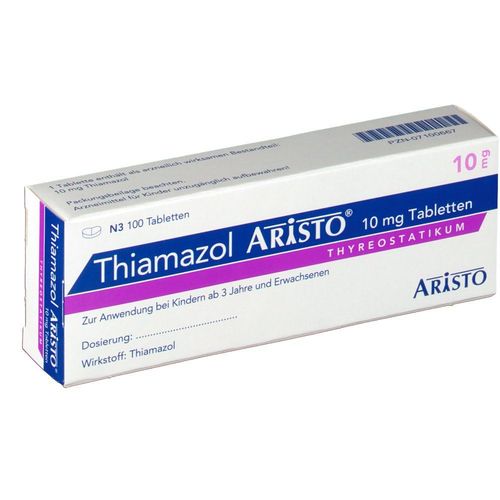This is an automatically translated article.
The article was professionally consulted with Master, Doctor Do Xuan Chien - Head of Department of Medical Examination & Internal Medicine - Vinmec Ha Long International General Hospital.Pregnancy with thyroid disease is one of the concerns and concerns of many women. When a pregnant mother has thyroid disease, it will have many serious effects on the mother and the fetus. However, there are still many methods for mothers to both treat the disease and minimize the impact on the baby.
1. Overview of thyroid disease
Thyroid gland is a part located right in front of the neck, has the function of secreting thyroid hormone, which plays a role in regulating metabolism, promoting the growth of cells, organs, organs... as well as brain development. In case this hormone is secreted too much or too little, it is not beneficial for the mother and the fetus.
Especially, hyperthyroidism (Basedow) occurs when the thyroid gland is overactive, causing goiter formation and greatly affecting the patient's health. Therefore, you should avoid getting pregnant while you have thyroid disease.
2. Risk to mother and fetus

Normally the fetal thyroid gland will be formed, starting to work from the 10th - 12th week of pregnancy. This means that during this period, the fetus is completely dependent on the mother's thyroid hormone. When you have hyperthyroidism, the concentration of thyroxine hormone in the mother's blood is very high, causing typical symptoms such as: tremors, heart palpitations, rapid pulse, bulging eyes, worse, heart failure. A lot of thyroxin will be absorbed into the fetal blood with high concentration leading to increased fetal heart rate, smaller fetus for age, even causing miscarriage, premature birth, stillbirth. In addition, the risks also include birth defects, birth defects.
Pregnant women taking thyroid medication (synthetic antithyroid drugs) may experience certain harms. One of these effects is hypothyroidism for the fetus. Most of the synthetic antithyroid drugs such as: Methylthiouracil (MTU), thyrozol, methimazol, carbimazol, propylthiouracil (PTU) have this dangerous toxicity. Particularly, PTU does not cross the placenta, so the toxicity level will be minimized.
Pregnant women, if the disease is advanced, can be at risk of acute attacks of hyperthyroidism (called thyroid storms) that can cause maternal death with a relatively high rate. During the last 3 months of pregnancy, the hyperthyroidism may decrease, but after giving birth, it increases, causing many difficulties for raising children. Therefore, doctors recommend that women with hyperthyroidism (Basedow), being treated for goiter, should not get pregnant during the advanced stage of the disease, it is best to cure the disease before becoming pregnant.
3. Methods of treating thyroid disease
Although thyroid disease brings many risks to pregnant women, if you have missed a pregnancy, it is not necessary to abort the pregnancy because if you know how to treat it well, most of the babies will be born normally. Instead, for treatment, pregnant women need to visit a doctor regularly and take medication as prescribed by a specialist.
In case of mild hyperthyroidism (the symptoms are not clear, the patient does not recognize the difference, the blood thyroxine level is not too high in the test), the pregnant woman only needs to be closely monitored and does not need to use drugs. In case of more severe disease, pregnant women when taking thyroid medication should pay attention to use the right type and dose according to the doctor's instructions. Avoid drugs that penetrate the fetal blood, causing hypothyroidism in the fetus. Usually doctors will prescribe the drug PTU (less cross the placenta) with the lowest effective dose. If medical treatment is not possible, goiter surgery may be considered. However, this case still has limitations because the surgery involves anesthesia, which is not beneficial to the fetus. The solution to cure with radioactive iodine is also not possible because radioactive iodine can enter the fetus, destroy the thyroid gland of the fetus, causing permanent hypothyroidism for the baby.
Another solution to treat goiter is to use beta blockers to reduce hand tremor syndrome, palpitations. However, this auxiliary drug should be used only when absolutely necessary and in limited amounts, because it can affect the development of the fetus (birth with low birth weight).
In case you need to have an abortion, the doctor also recommends treating hyperthyroidism until the disease is stable to terminate the pregnancy. Because sudden abortion can cause acute hyperthyroidism (thyroid storm), potentially life-threatening. General principles when treating goiter in pregnancy Ideally, it is best to treat stable thyroid disease first before planning a pregnancy. However, if you are on treatment but "miss" pregnant, you can still keep the pregnancy, as long as the patient closely monitors and uses the medicine as prescribed by the doctor. The goal of treating thyroid disease (hyperthyroidism) during pregnancy is to use the lowest dose of antithyroid medication, as long as the thyroid hormone levels are normal and maintained at that level. According to the recommendations of the Thyroid Association, pregnant women with hyperthyroidism can use PTU or Thyrozol to treat the disease. In the first trimester of pregnancy, preference should be given to the use of PTU antithyroid drugs because they are less likely to cross the placenta. In the following months until postpartum and lactation, if the pregnant woman still needs to take antithyroid drugs, Thyrozol can be used because the drug does not pass through breast milk and has few side effects on the liver for both mother and baby. Pregnant women with hyperthyroidism can still give birth to healthy babies. However, during the whole treatment process, both mother and baby should be closely and regularly monitored by obstetricians and endocrinologists at reputable units.

4. Thyroid disease treatment at Vinmec Times City International Hospital
Vinmec Times City International General Hospital - Endocrinology specialty is considered as one of the leading units in the treatment of diseases related to Endocrine and thyroid. With a system of modern medical equipment, Vinmec Times City's experienced and highly specialized doctors have accurately diagnosed health conditions and provided appropriate treatment plans for many complicated cases.
Please dial HOTLINE for more information or register for an appointment HERE. Download MyVinmec app to make appointments faster and to manage your bookings easily.














